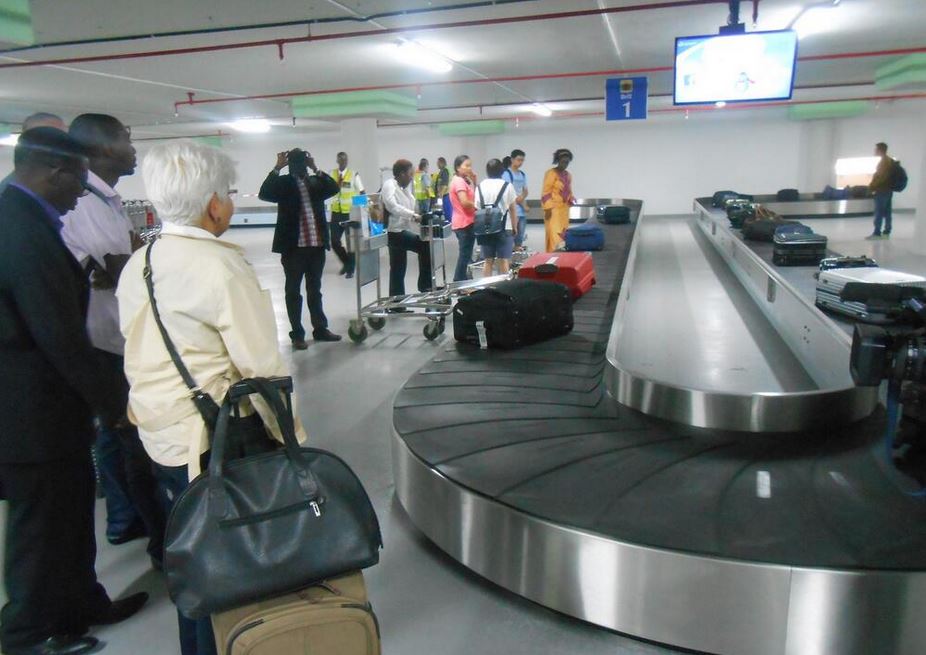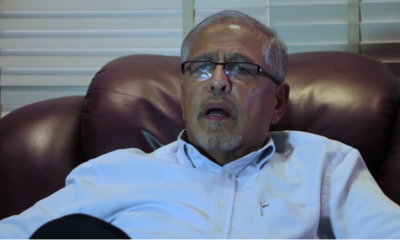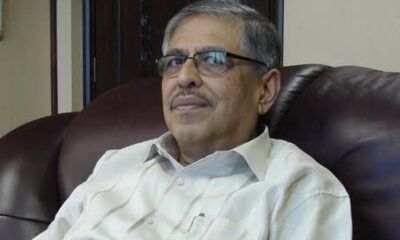Investigations
The Return of 91KG Gold Smuggled to Dubai Exposes The Criminal Web of Scammers and Officials in Nairobi
At the heart of this operation are three foreign nationals with extensive criminal histories spanning multiple continents.

An investigation reveals how three foreign nationals with criminal histories have exploited Kenya’s porous systems with alleged help from senior government officials
The mysterious return of 91 kilograms of gold from Dubai has pulled back the curtain on a sophisticated criminal network that appears to have infiltrated Kenya’s immigration and customs systems, turning Nairobi into what sources describe as a “scammers’ paradise.”
The gold consignment, originally smuggled from the Central African Republic through Ethiopia using fraudulent documentation, was intercepted by United Arab Emirates authorities and returned to Kenya after they discovered the precious metal had been air-freighted using fake papers.
What investigators have uncovered since then paints a disturbing picture of institutional corruption and international criminal collaboration.
At the heart of this operation are three foreign nationals with extensive criminal histories spanning multiple continents.
Djamaa Ibrahim (Senegalese passport A03946111), Abdelkarim El Ghazouani (Nigerian passport B50015846 and French passport), and Pylyp Prokofiev (Moroccan passport FJ426593, also holding Ukrainian and Kazakhstan passports) are believed to be the architects of this latest smuggling attempt.
Intelligence sources reveal that this unlikely trio first met in a French prison several years ago while serving sentences for drug trafficking.
Upon their release, they maintained contact and appear to have graduated to more lucrative criminal enterprises involving precious metals trafficking.
According to investigators, the three men have been operating in Kenya for several weeks, moving through Nairobi while attempting to smuggle the gold consignment out of the country.
Their ability to remain undetected for this extended period raises serious questions about the effectiveness of Kenya’s immigration monitoring systems.
This case represents the latest chapter in what appears to be a systematic compromise of Kenya’s border security apparatus.
A confidential situational report from the Directorate of Criminal Investigations (DCI), compiled just two years ago, revealed that immigration officers were actively colluding with criminal elements.
The report documented cases where immigration officials were not only facilitating illegal entry but also placing red alerts to threaten deportation of foreigners who had been defrauded—effectively protecting the very criminals they were meant to apprehend.
The current investigation suggests this pattern of corruption has not only persisted but may have evolved into a more sophisticated operation involving senior government officials who allegedly provide protection and logistical support to international criminal networks.
Kenya’s Role in the Global Gold Smuggling Network
The 91-kilogram seizure must be understood within the broader context of Kenya’s emergence as a critical transit hub for illicit gold from across Africa.
A SwissAid report released in May 2024 revealed that over $30 billion worth of gold, or more than 435 metric tons, was smuggled out of the continent in 2022, with the main destinations for African gold being the United Arab Emirates, Turkey and Switzerland.
Kenya’s position in this illicit trade is particularly concerning.
While the country declared only 672 kilograms of gold exports in 2023, SwissAid estimates that illicit outflows likely exceed two tons annually.
The organization noted that “Kenya acts as a transit hub for gold from neighboring countries. The vast majority of the gold that is shipping from Kenya is not declared for export.”
The routing typically involves gold from conflict zones in South Sudan and the Democratic Republic of Congo being transported through Kenya to Dubai and Abu Dhabi via Jomo Kenyatta International Airport.
An expert on Artisanal and Small Scale Mining consulted by SwissAid confirmed that this business is “mostly dominated by entrepreneurs through their wholesale shops in Eastleigh, Nairobi.”
The Eastleigh Connection
Eastleigh, Nairobi’s bustling commercial district, has emerged as the nerve center for these operations.
The area’s numerous wholesale shops serve as fronts for what investigators describe as a sophisticated money laundering and precious metals trafficking network.
The choice of Eastleigh is strategic.
The district’s legitimate trade in gold jewelry and precious metals provides perfect cover for illegal operations.
The area’s complex network of Somali, Ethiopian, and other East African business networks also offers natural channels for moving goods across borders without detection.
What makes this particularly troubling is the apparent institutionalization of these criminal activities.
Sources indicate that certain government officials have become so embedded in these networks that they effectively guarantee safe passage for smugglers in exchange for substantial financial rewards.
The Ethiopia Route
The current case highlights the importance of the Ethiopia connection in these smuggling operations.
The 91 kilograms of gold was routed from the Central African Republic through Ethiopia before reaching Kenya, demonstrating how criminal networks exploit regional integration and porous borders.
SwissAid’s research indicates that traffickers regularly use the Moyale and Yabelo route to smuggle gold from Ethiopia’s Oromia and Southern regions into Kenya.
This route has become so well-established that it operates with what sources describe as “industrial efficiency.”
The involvement of Ethiopian routes is particularly concerning given the ongoing civil conflict in neighboring Sudan.
SwissAid considers it “plausible that gold may be flowing from Sudan to Kenya, given Kenya’s role as a transit hub,” though their research has not yet yielded solid evidence of this connection.
The Kenyan government has been notably slow to respond to these challenges.
While legislation was introduced in 2023 to formalize small-scale mining and reduce illegal gold trade, it has not yet become law.
This legislative vacuum has created an environment where criminal networks can operate with relative impunity.
The DCI’s current efforts to locate the three foreign suspects represent a reactive approach to what is clearly a systemic problem.
Sources within the investigative community express frustration that despite having detailed intelligence on these operations, the institutional response remains inadequate.
The Dubai Connection
The UAE’s role as the primary destination for smuggled African gold cannot be understated.
Abu Dhabi received $115 billion worth of illicit gold from the continent in 10 years, according to SwissAid’s investigation.
The return of the 91 kilograms of gold to Kenya by UAE authorities represents an unusual development in this trade.
Typically, such consignments disappear into Dubai’s massive gold processing industry, where they are refined and re-exported to global markets with clean documentation.
The fact that UAE authorities identified and returned this particular consignment suggests either improved due diligence procedures or that the fraudulent documentation was so poorly crafted that it raised immediate red flags.
The implications of this investigation extend far beyond Kenya’s borders.
The ability of international criminal networks to exploit Kenya’s systems threatens regional stability and economic integration efforts across East Africa.
The case also highlights how global criminal networks adapt to exploit weaknesses in developing countries’ institutional frameworks.
The sophistication of these operations—involving multiple passports, complex routing systems, and high-level government corruption—suggests that traditional law enforcement approaches may be inadequate.
As DCI investigators continue their efforts to locate the three suspects, the broader questions raised by this case demand urgent attention.
The systematic corruption within Kenya’s immigration and customs systems requires a comprehensive response that goes beyond individual prosecutions.
The government must address the legislative gaps that allow these operations to flourish while simultaneously strengthening institutional capacity to detect and prevent such activities.
International cooperation, particularly with UAE authorities, will be crucial in disrupting these networks.
Most critically, the investigation must extend beyond the three foreign suspects to identify and prosecute the “senior government officials” who have allegedly facilitated these operations.
Without accountability at the highest levels, Kenya risks becoming permanently established as a haven for international criminal networks.
The return of 91 kilograms of gold has provided a rare window into a criminal underworld that typically operates in shadows.
Whether Kenya’s institutions prove capable of addressing the challenges it has revealed will determine whether the country can reclaim its reputation or continue its slide toward becoming what critics describe as a “scammers’ paradise.”
This investigation is part of an ongoing series examining criminal networks operating in Kenya. The next installment will provide detailed accounts of the collusion between criminal networks and government officials.
Kenya Insights allows guest blogging, if you want to be published on Kenya’s most authoritative and accurate blog, have an expose, news TIPS, story angles, human interest stories, drop us an email on [email protected] or via Telegram
-

 Business1 week ago
Business1 week ago‘They’re Criminals,’ Popular Radio Presenter Rapcha The Sayantist Accuses Electric Bike Firm Spiro of Fraudulent Practices
-

 Business6 days ago
Business6 days agoIt’s a Carbon Trading Firm: What Kenyans Need to Know About Spiro’s Business Model Amid Damning Allegations of Predatory Lending
-

 Business4 days ago
Business4 days agoManager Flees Safaricom-Linked Sacco As Fears Of Investors Losing Savings Becomes Imminent
-

 News2 weeks ago
News2 weeks agoTemporary Reprieve As Mohamed Jaffer Wins Mombasa Land Compensation Despite Losing LPG Monopoly and Bitter Fallout With Johos
-

 Investigations1 week ago
Investigations1 week agoDisgraced Kuscco Boss Arnold Munene Moves To Gag Media After Expose Linking Him To Alleged Sh1.7 Billion Fraud
-

 Investigations2 weeks ago
Investigations2 weeks agoFrom Daily Bribes to Billions Frozen: The Jambopay Empire Crumbles as CEO Danson Muchemi’s Scandal-Plagued Past Catches Up
-

 News5 days ago
News5 days agoWoman Accused in High Defamation Blames AI As Case Exposes How Mombasa Billionaire Mohamed Jaffer Allegedly Sponsored Smear Campaign Linking Joho’s Family To Drug Trafficking
-

 Sports2 weeks ago
Sports2 weeks ago1Win Games 2025: Ultimate Overview of Popular Casino, Sports & Live Games










